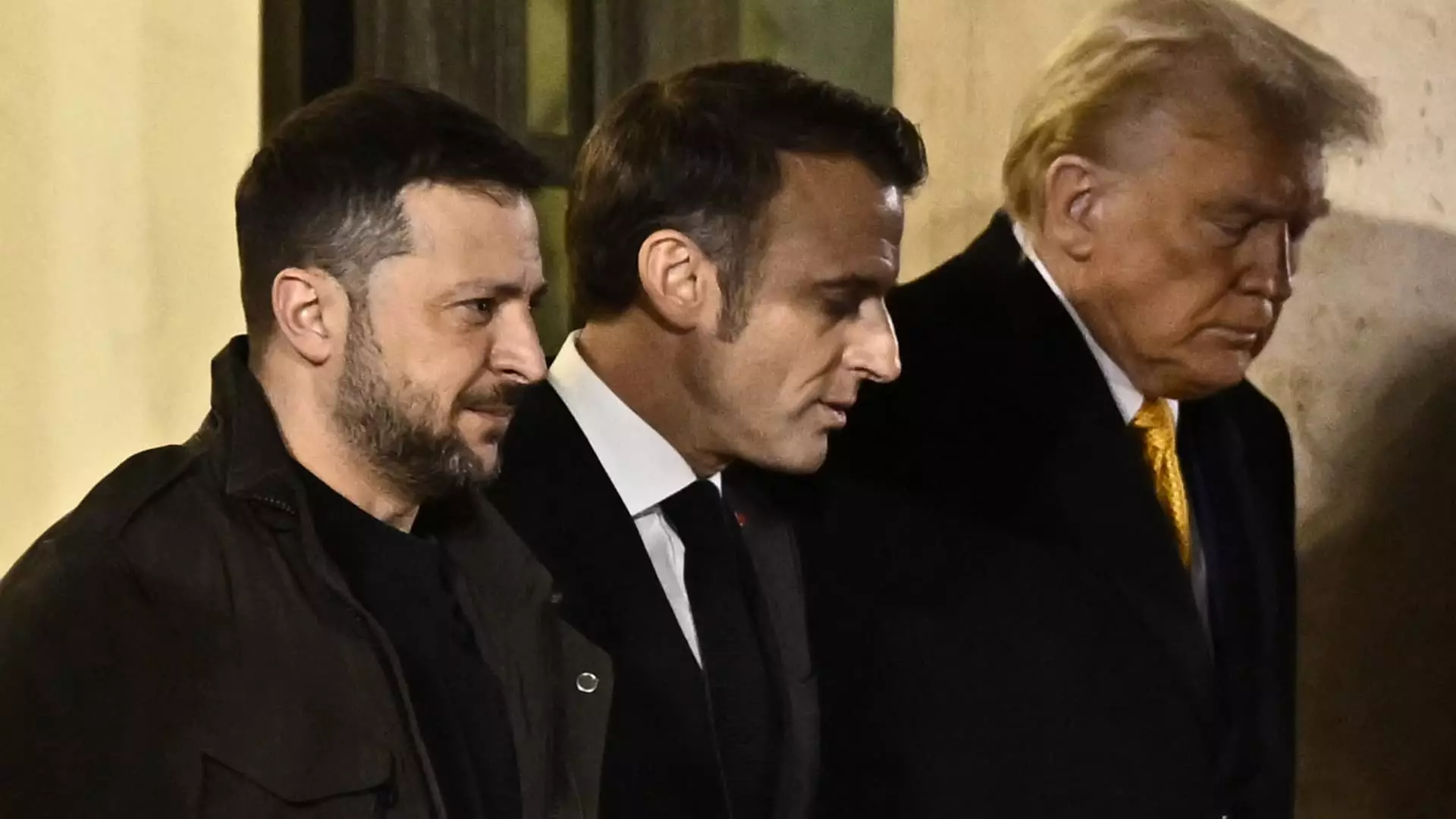The escalating conflict between Russia and Ukraine has not only impacted the lives of millions but has also sparked a geopolitical tug-of-war involving major global powers. In the midst of this turmoil, European leaders find themselves anxious to assert their influence in forthcoming peace negotiations. Recent developments underscore the urgency and necessity of Europe’s involvement, especially with the United States and Russia poised to initiate discussions in Saudi Arabia. The interconnectedness of international relations is more evident than ever, as the outcomes of these talks will reverberate across borders.
In response to a growing sense of exclusion, European leaders, led by French President Emmanuel Macron, convened in Paris for an emergency summit. The decision to hastily organize the meeting reflects a desperate bid to ensure that Europe is not sidelined in dialogue aimed at resolving the conflict. Just a day prior, the Munich Security Conference had highlighted the dangers of having high-level discussions that overlook Europe’s vital role. There is a palpable fear that significant decisions regarding the future of Ukraine could be made without the direct input of those who are most affected.
The upcoming discussions in Saudi Arabia are poised to set a critical precedent in the resolution of the nearly three-year-long war. With U.S. Secretary of State Marco Rubio preparing to meet with Russian Foreign Minister Sergei Lavrov, questions abound regarding the involvement of Ukrainian President Volodymyr Zelenskyy. Zelenskyy’s declaration that Ukraine would not engage in initial negotiations has stirred concerns about the legitimacy of any potential agreement reached without Ukrainian participation.
The situation has been further complicated by mixed signals from U.S. officials. President Donald Trump had previously indicated that Zelenskyy’s involvement was assured, yet this has not materialized as anticipated. In a video briefing, Zelenskyy expressed frustration, asserting, “Ukraine regards any negotiations on Ukraine without Ukraine as ones that have no result.” The implication is clear: any agreement that does not include Ukrainian representatives is inherently flawed and unlikely to lead to lasting peace.
U.S. envoy Keith Kellogg’s remarks at the Munich Security Conference have intensified concerns regarding the absence of a formal European representation in the discussions. Kellogg’s assertion that the U.S. prefers to avoid large-group discussions reveals a clear intent to prioritize streamlined negotiations, even if this means sidelining respected European allies. This dynamic not only raises eyebrows in Europe but might also potentially alienate key stakeholders who could provide invaluable perspectives on security guarantees and peace-building initiatives.
European officials are vocal in their belief that a sustainable peace agreement hinges on comprehensive involvement from both European countries and Ukraine. Kaja Kallas, the EU’s foreign policy chief, emphasized this point, arguing that Euopeans and Ukrainians are integral to implementing any future agreement. The legitimacy of a peace accord will depend significantly on how well stakeholders from the region are incorporated into the negotiation process.
European Commission President Ursula von der Leyen explicitly highlighted the broader consequences of sidelining Europe, suggesting that a failure to secure a just resolution could weaken both Europe and the United States. Such sentiments underscore the importance of a collaborative approach that recognizes the interconnected fates of all involved parties.
The Paris summit brought together key representatives from several European nations, including Germany and Poland, indicating a unified front in the face of adversity. Importantly, U.K. Prime Minister Keir Starmer’s commitment to act as a bridge between Brussels and Washington serves as a reminder of the necessity for a coordinated effort in tackling security issues in the region. Starmer’s willingness to consider military support in Ukraine further emphasizes the seriousness of Europe’s commitment to safeguarding its security interests.
As NATO prepares for a summit scheduled for June, the alliance’s intent to increase defense spending targets reflects a strategic pivot aimed at enhancing European military readiness. It is crucial for European nations to demonstrate united resolve, particularly in their defense capabilities, to reinforce the message that their interests must not be overlooked.
In the volatile landscape established by the Russia-Ukraine conflict, the importance of constructive dialogue cannot be overstated. Europe must engage decisively with its allies to ensure that peace talks do not disregard the perspectives of regional stakeholders. An effective peace settlement is contingent on collaboration and mutual respect, illuminating the need for all parties to participate meaningfully in the process.
To curb the historical narrative of peace negotiations that have excluded regional voices, Europe’s involvement is essential. As discussions unfold, it will be vital for European leaders to advocate for their participation and work tirelessly to forge alliances that underscore their commitment to enduring peace and stability in Ukraine. The stakes are undeniably high, and Europe’s proactive engagement will play a vital role in shaping the region’s future.

Leave a Reply